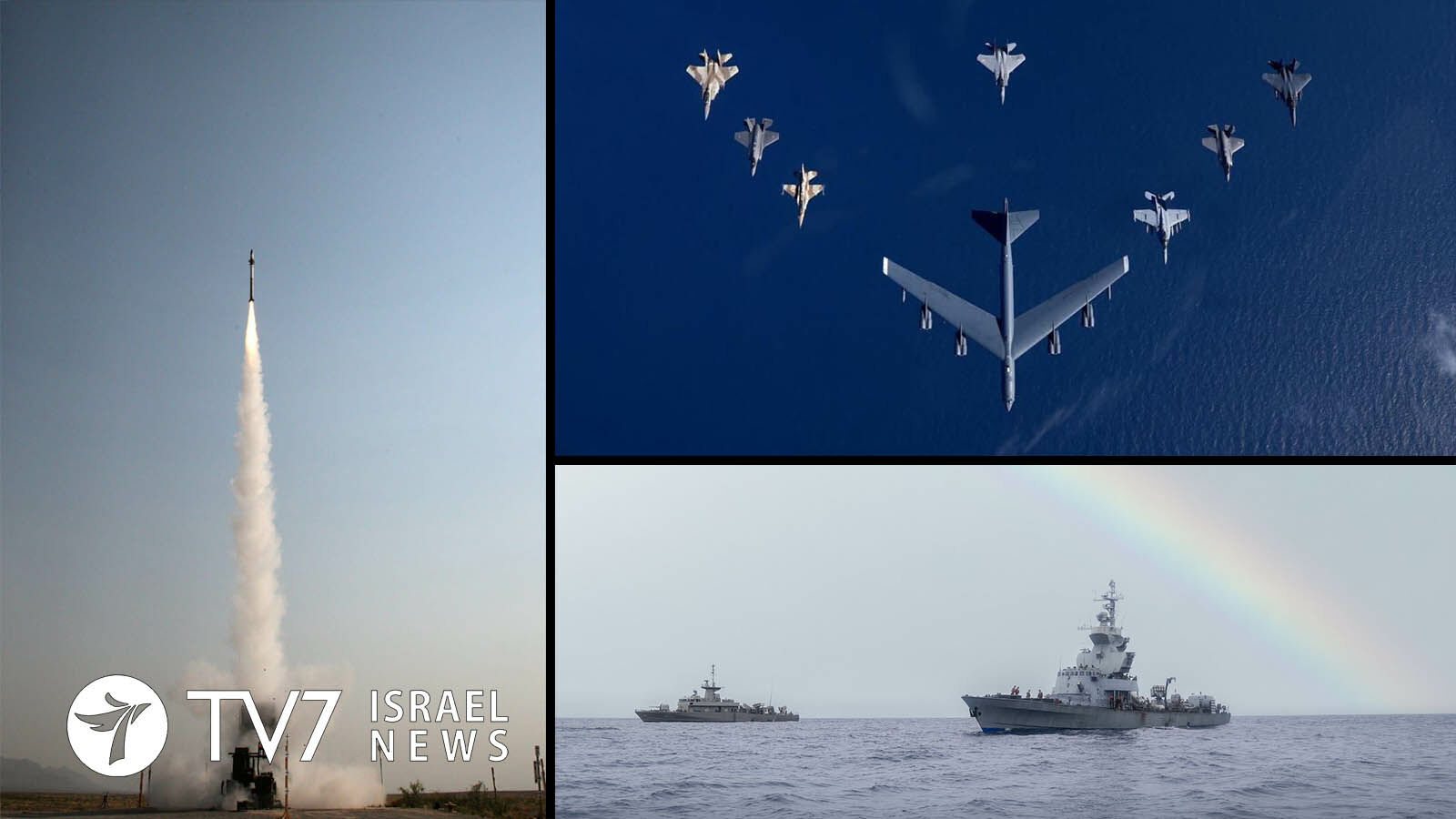If the world fails to stop nuclear advancements by Iran, Israel will be forced to take unilateral action, said Israeli National Security Advisor Tzachi Hanegbi.
By Jonathan Hessen and Erin Viner
Israel is closely monitoring Iran’s progress toward its development of nuclear weapon capabilities.
Jerusalem remains keen to see the international community could reach an agreement to obstruct the Ayatollah regime’s atomic ambitions but would not hesitate to launch a military operation if any declared red-lines are crossed.
This, according to an address delivered at the annual conference of the Institute for Strategy and Policy at Reichmann University in Herzliya by Israeli National Security Advisor Tzachi Hanegbi.
When asked to comment on an Associated Press report that Iran is building a subterranean nuclear installation designed to foil attacks carried out with even the most sophisticated of munition, he said such attempts are “neither surprising nor new. This began many years ago, in tunnels that were dug in Isfahan and then at the Fordow Fuel Enrichment Plant in Qom, and today we are speaking about another exposed installation in the vicinity of Natanz. This, of course, limits striking capacity; on-surface installations are naturally easier to strike. However, what I can tell you on this matter – there is no such place that cannot be penetrated in a type of strike which you are referring to.”
Hanegbi, who formerly served as a senior minister in consecutive Israeli governments, went on to stress that such any underground facility would take years to complete. And while refusing to provide a timeline or specify the point of no return that would compel Israeli action – he emphasized that the time would come when, “without a reason of doubt, from our perspective, if we assess that there is no longer an alternative to military action against Iran’s nuclear facilities;” similarly to the bombings of Iraq’s Osirak Nuclear Facility in 1981 and Syria’s Al Kibar Reactor in 2007 “when all other actions were no longer effective.”
The Israeli National Security Council agrees with an IDF Intelligence Directorate determination that the Ayatollah regime has yet to make a final decision to produce nuclear weapons – that would undoubtedly also incur a global reaction.
Even though the United States Department of Defense believes it would take 3 weeks for Iran accelerate enrichment from 60-90% (or as few as 12 days, according to other American sources), Hanegbi pointed out that “this quantity does not provide you a nuclear weapon, rather it places you in a position of having enough enriched uranium for a nuclear payload, and as time progresses, additional quantities.”
While Iran would still need to actually “go through a process of manufacturing a nuclear device, which they do not have,” Israel’s National Security Advisor stressed that, “nevertheless, from our perspective, this is certainly more than just a red flag, this is a flag that demands immediate action or else we practically accept a reality in which a radical regime attains a nuclear weapon, a weapon of mass destruction, which we are unwilling to accept.”
He expressed conviction that Israeli Prime Minister Benjamin Netanyahu would take unilateral preemptive action to prevent a nuclear weaponized Iran, even in the absence of US support “in contrast to its declared policy of six consecutive presidents.”
Despite the potentiality of that move, however, Jerusalem maintains an unprecedented level of cooperation with Washington in an alliance that would see both countries standing shoulder-to-shoulder in times of crisis.
During his nearly-40 year career beginning at the Foreign Ministry in 1984 under leadership by then-Prime Minister Yitzhak Shamir, Hanegbi remarked, “I can tell you that the intelligence, defense, operational cooperation between the United States and Israel was never as tight; and from my perspective as the Director of the National Security Council, has never been as fulfilling.”
While remaining in full agreement about the Iranian threat, the key difference between the allies is the US pursuit of a diplomat resolution via revival of the Joint Comprehensive Plan of Action (JCPOA) whereas Israel believes the 2015 pact “is no longer relevant,” he said.
Earlier this week at a conference in Washington D.C. convened by the US Central Command (CENTCOM) and Middle East Institute, the US Assistant Secretary of Defense for Strategies, Plans and Capabilities said that American national interests have been made clear to “our longstanding partners in the region” that “integration and interoperability” are the key words “necessary to address Iran’s reckless activities across all domains.”
Dr. Mara Karlin added it is necessary for Mideast allies to increase participation to “meaningfully counter violent extremist organizations” due to “the scope, the scale and the cross-border nature of these threats that demand integration and they demand multilateral cooperation.”
In defiance of the US focus on regional cooperation, Iran has unveiled its latest military advancement, the Khoramshahr 4 Strategic Ballistic Missile it claims can evade radar to penetrate enemy air defense systems.
The development sends a “message to our enemies is that we are determined to defend the country and the achievements of the Islamic Revolution,” stated Iranian Defense Minister Brigadier General Mohammad-Reza Gharaei Ashtiani, boasting, “And we have shown the enemy that they cannot stop the growth and progress of our youth.”
